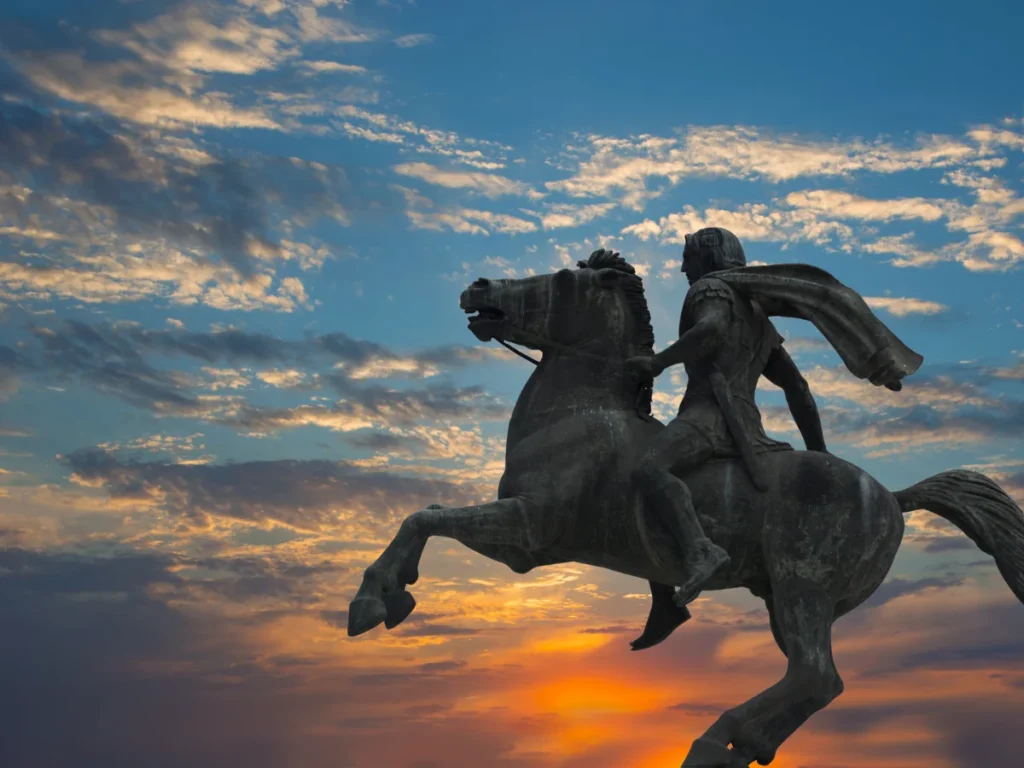The mystery of Alexander the Great's final resting place
The mystery of Alexander the Great’s final resting place continues to intrigue scholars and adventurers alike. After a life of unparalleled conquests, his death in 323 BCE marked the beginning of an enigma that endures to this day. Despite various theories and exhaustive searches, the exact location of his tomb remains elusive. Alexander’s legacy, as both a conqueror and a historical enigma, ensures that his final resting place remains one of history’s greatest mysteries.

The mystery of Alexander the Great's final resting place
The Legacy of a Conqueror
Alexander the Great, one of the most remarkable military tacticians and conquerors in history, left an indelible mark on the ancient world. His meteoric rise and astonishing conquests stretched from Greece to Asia, reshaping empires, cultures, and civilizations. Yet, for all his greatness, his final resting place remains one of history’s greatest mysteries.
The Life and Legacy of Alexander
Born in 356 BCE in the ancient city of Pella, which was part of the Kingdom of Macedon, Alexander was destined for greatness. He was the son of King Philip II and Queen Olympias, inheriting a formidable legacy. His education, overseen by the philosopher Aristotle, equipped him with the wisdom and knowledge to rule and conquer.
The Conquests and Triumphs
Alexander’s conquests began in earnest after his father’s assassination in 336 BCE. By 334 BCE, he embarked on an epic campaign to conquer the Persian Empire, a task deemed impossible by many. His brilliant military strategies and the unwavering loyalty of his troops led to a series of victories, culminating in the fall of the mighty Persian capital, Persepolis, in 330 BCE.
Alexander’s ambitions didn’t stop there. He pressed eastward into Asia, reaching the edge of the known world. His army crossed deserts, scaled mountains, and endured countless hardships. The famed Siege of Tyre and the Battle of Gaugamela demonstrated his military genius.
The Enigma of His Death
In 323 BCE, Alexander fell ill and died in the palace of Nebuchadnezzar II in Babylon, leaving an empire that stretched from Greece to India. His death at the age of 32, under mysterious circumstances, sent shockwaves throughout the ancient world. Various theories surround the cause of his death, from natural illness to poisoning, but the truth remains elusive.
The Journey to an Unknown Resting Place
After his death, Alexander’s body was preserved in a gold sarcophagus filled with honey, a common practice of the time to prevent decomposition during the long journey back to Macedonia. The plan was to bury him in the royal tombs of Aegae, but fate had other plans.
The Search for the Tomb
The exact location of Alexander’s tomb has puzzled historians, archaeologists, and treasure hunters for centuries. Despite numerous expeditions and searches, no definitive evidence has been found. Some speculate that it may lie hidden in Egypt or in the ancient city of Alexandria, while others believe it’s somewhere in Greece.
The Enduring Legend
The absence of a known grave has only added to Alexander’s legend. His legacy endures through the annals of history, and his story continues to captivate the imagination of people worldwide. Whether he rests beneath the earth in an unmarked tomb or vanished into the annals of time, Alexander the Great’s final resting place remains an enduring mystery, a fitting tribute to the enigmatic conqueror who reshaped the world.
In conclusion, Alexander the Great’s life and legacy are the stuff of legends. His conquests and military genius remain unparalleled, and his death and the mystery surrounding his final resting place only add to his allure. As history’s greatest unsolved mysteries, the search for his tomb continues to capture the fascination of both scholars and adventurers alike.
